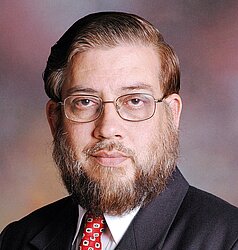Prof. Dr. Raghavendra Gadagkar, India

1. Please describe your (scientific) work/research in a short way.
I have chosen the locally available Indian species of primitively eusocial wasp Ropalidia marginata to unravel the evolutionary forces that promote social life. I and my team of students have pursued empirical and theoretical, field and laboratory, work on this single species for over 40 years. We have discovered that queens mate multiply and mix sperm from different males, workers rear rather distantly related brood without being able to discriminate between different classes of relatives and, that all individuals are not equally fit for social or solitary life. I developed the theory of Assured Fitness Returns to show how group living can confer advantages over solitary life, independent of genetic relatedness. We have demonstrated that queens of R. marginata are behaviourally docile, meek sitters, though they start as aggressive potential queens. Workers self-organize their own non-reproductive activities and thereby gain indirect fitness without much prodding by the queen. There is a smooth and conflict-free succession from one queen to the next. Even though human observers cannot predict the identity of the successor, the wasps themselves appear to know who the successor is. The overarching goal of my research is to search for general principles of social evolution that apply across different taxa of microbes, plants and animals including humas and understand how a sustainable balance between conflict and cooperation can be achieved.
2. Which aspect of a sustainable life, work and research is especially relevant for you and why?
Present-day academia, especially in the natural sciences is poorly organized and badly manged. Scientists are judged by their ability to obtain large research grants and publish in so-called high-impact journals. Granting agencies and journals have thus become very conscious of their prestige and have organized their operations as high-stake competitions with a small number of big winners and large number of poor losers. As a result, a very small proportion of academics are labelled as successful while the rest are made to think that they are unsuccessful. This demoralizes a large fraction of researchers who are otherwise perfectly capable of making valuable contributions to the production of knowledge. The true quality of scientific research, which may have little to do with how expensive it is to pursue and where it is published, has lost prestige. Academia has largely forfeited the opportunity to provide an encouraging and level playing field conducive to thoughtful, quality research that is both satisfying and sustainable.
3. What would be your wish for the future (and why) with this regard?
It is my hope that we can bring about major reforms in academia and value the quality of research rather than mere quantity and evaluate scientists by their contribution to significant new knowledge irrespective of their fund-raising ability and where their research is published. Going a step further, we would do well to tilt the balance and add prestige to low-cost research. Such reforms will surely create a much more healthy atmosphere where nearly all scientists are winners, each contributing in their uniquely different ways. We need to create and embrace diversities of many kinds including the gender, race and ethnicity of the people, the disciplines of research and their underlying philosophies, research methodologies, the uses of knowledge...
4. How is the Corona crisis affecting you in your every-day life and work?
The corona crisis has brought our experimental research to a halt, at least temporarily. In the case of some long-term studies this halt may be nearly permanent. And yet, it has been possible to make the best of a bad situation. I have been able to focus more on data analysis and preparation of manuscripts for publication. Even more significant, I have started new writing projects which may have been impossible, or at least very difficult at other times. I have completed a book entitled Experiments in Animal Behaviour: Cutting Edge Research at Trifling Cost which has been published as an open-access e-book by the Indian Academy of Sciences and can be found online.
I have also started writing a bi-weekly column “More Fun Than Fun” taking the joy and spirit of science to a wide audience. This is being published online by The Wire Science.



